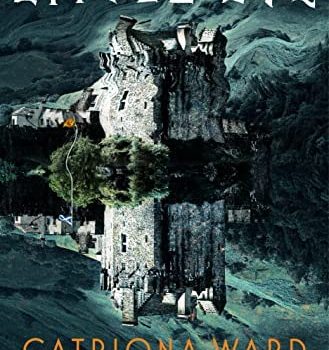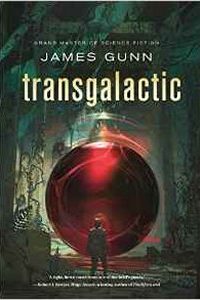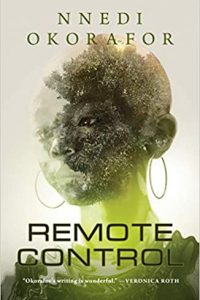Gabino Iglesias Reviews Little Eve by Catriona Ward
 Little Eve, Catriona Ward (Weidenfeld & Nicholson 978-0297609681, 288pp, tp) July 2018. (Tor Nightfire 978-1-25081-265-0, $17.98, 288pp, hc) October 2022.
Little Eve, Catriona Ward (Weidenfeld & Nicholson 978-0297609681, 288pp, tp) July 2018. (Tor Nightfire 978-1-25081-265-0, $17.98, 288pp, hc) October 2022.
Catriona Ward’s Little Eve, which won the Shirley Jackson Award for Best Novel in 2018, is an atmospheric narrative that’s as elegant and strange as it is dark and complex. At once a story of religious fanaticism with gothic elements, a chronicle of the downward spiral of a strange family, and a horror novel about control, torture, and murder, Little Eve is one of Ward’s best books, and that’s saying a lot.
There’s a little island on the town of Loyal known as Altnaharra. It’s a desolate place, subject to the weather and the rough ocean that surrounds it. The only thing on the island is a dilapidated castle where a man lives with his children, all of whom he took – he says – from parents who couldn’t take care of them. Every one of the kids calls the man Uncle, and they all live convinced that the end of the world and its rebirth are near, and that they will all play a big role in both things. For those living under Uncle’s control, life is harsh. They are subjected to abuse, hunger, isolation, cold, and they are covered in lice. Their awful living conditions make them want to leave and some of them contemplate suicide, but they also want to stay, and a single hug from Uncle is often enough to carry them through the worst of it. Also, they are convinced everything outside their little world is evil and dirty. Unfortunately, nothing lasts forever, and the many cracks in Uncle’s teachings, coupled with the growing uncertainty planted in the children by outsiders, lead to a horrific end.
While the main character in the book is Evelyn, there are also two other young girls, Dinah and Elizabeth, a young boy by the name of Abel, and two caretakers (although that word isn’t exactly perfect here), Nora and Alice. Along with Uncle and a man of the law named Christopher Black, who has a special interest in liberating the children from the dark lives they lead in Altnaharra, every character in this narrative shares the spotlight because they exist in a microcosm and their lives revolve around each other. This becomes crucial in the last third of the story, where identity – real, imagined, and stolen – becomes a driving force in the narrative that plays with readers’ perceptions of reality and shows how unreliable memory can be.
More than a straightforward novel, Little Eve is a deeply intertwined collection of stories that converge on a few crucial moments. Ward is a great storyteller with a penchant for atmosphere, which she nails it here, and the combination of events, memories, and descriptions almost force the reader to slow down and pay attention to every conversation, every confusion, every bizarre ritual, and every detail offered about Altnaharra, its history, and its residents. The result of this slowing down is tension. Yes, Little Eve is atmospheric and elegant, but it’s also incredibly tense, and every instance of children punished with spending time in a dark hole without food, every drop of blood fed to a snake, and every hallucinatory experience add to the sense of dread that’s present from the book’s opening pages.
The darkness, blood, fear, and crumbling castle make this a gothic tale, but there are many more details that help this novel dip its toes in both horror and literary fiction. The weather, the isle itself, the seals, the snake Uncle carries around, and even the honey Uncle feeds his children (which ultimately plays a huge role in the story) are all small things that, when taken together, make this a rich, complex novel that also somehow manages to be touching.
It’s hard to keep secrets all the way to the end, but Ward pulls it off here, and she does so with a lot of style and while delivering a novel that is both haunting and full of twists. There are a few awards I pay attention to – Stoker, Locus, Shirley, Anthony, Hugo – and this novel clearly deserved the accolade, and it’s a book every lover of dark fiction should read.
Gabino Iglesias is a writer, journalist, professor, and book reviewer living in Austin TX. He is the author of Zero Saints and Coyote Songs and the editor of Both Sides. His work has been nominated to the Bram Stoker and Locus Awards and won the Wonderland Book Award for Best Novel in 2019. His short stories have appeared in a plethora of anthologies and his non-fiction has appeared in the New York Times, the Los Angeles Times, and CrimeReads. His work has been published in five languages, optioned for film, and praised by authors as diverse as Roxane Gay, David Joy, Jerry Stahl, and Meg Gardiner. His reviews appear regularly in places like NPR, Publishers Weekly, the San Francisco Chronicle, Criminal Element, Mystery Tribune, Vol. 1 Brooklyn, the Los Angeles Review of Books, and other print and online venues. He’s been a juror for the Shirley Jackson Awards twice and has judged the PANK Big Book Contest, the Splatterpunk Awards, and the Newfound Prose Prize. He teaches creative writing at Southern New Hampshire University’s online MFA program. You can find him on Twitter at @Gabino_Iglesias.
This review and more like it in the January 2023 issue of Locus.
 While you are here, please take a moment to support Locus with a one-time or recurring donation. We rely on reader donations to keep the magazine and site going, and would like to keep the site paywall free, but WE NEED YOUR FINANCIAL SUPPORT to continue quality coverage of the science fiction and fantasy field.
While you are here, please take a moment to support Locus with a one-time or recurring donation. We rely on reader donations to keep the magazine and site going, and would like to keep the site paywall free, but WE NEED YOUR FINANCIAL SUPPORT to continue quality coverage of the science fiction and fantasy field.
©Locus Magazine. Copyrighted material may not be republished without permission of LSFF.








